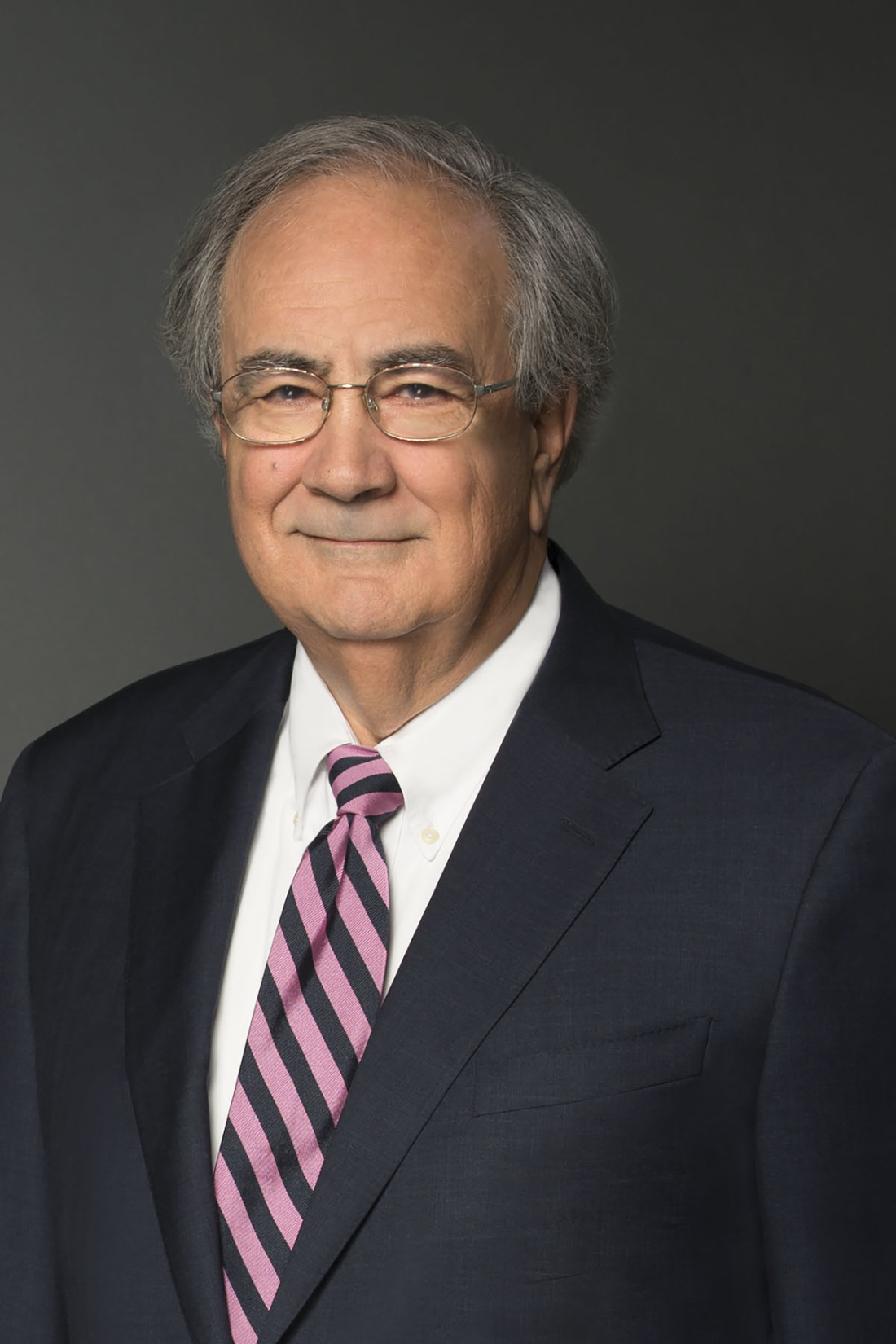Showing 33 posts from August 2018.
Delaware Superior Court Explains When Expert Opinion Is Admissible
The State of Delaware v. Card Complaint LLC, C.A. N13C-06-289 PRW CCLD (August 29, 2018)
This is an excellent summary of the law governing the admissibility of an expert opinion. It is particularly useful in dealing with non-scientific opinions that are based on experience in an industry.
ShareMorris James Named a Top Work Place for Mid-sized Employers in Delaware Eleventh Consecutive Year
 Morris James was named a top work place for mid-sized employers in Delaware for the eleventh consecutive year. This year's top workplace honor makes Morris James the only law firm in Delaware to be consistently top-ranked in the mid-sized employers category for the past eleven years. More ›
Morris James was named a top work place for mid-sized employers in Delaware for the eleventh consecutive year. This year's top workplace honor makes Morris James the only law firm in Delaware to be consistently top-ranked in the mid-sized employers category for the past eleven years. More ›
Court of Chancery Authorizes Use of Extrinsic Evidence to Construe Preferred Stock Rights
Stock preferences are in derogation of the common law and thus strictly construed. Any rights, preferences, and limitations of preferred stock that distinguish it from common stock must be expressly and clearly stated. But, as this decision explains, that does not mean that extrinsic evidence cannot be considered to construe ambiguous provisions. The decision also affirms that stockholder rights to inspect corporate records for a proper purpose cannot be taken away by a certificate of incorporation.
ShareCourt Of Chancery Explains How To Interpret Interlocking LLC Agreements
Godden v. Franco, C.A. 2018-0504-VCL (August 21, 2018)
When multiple LLC agreements for several entities contain provisions that relate across the entities, deciding how to interpret those provisions is a potential problem. As this decision points out, the separate identities of the entities need to be respected. Nonetheless, when the LLC agreements create contract rights, those rights can be enforced, just as a stockholders’ agreement can be enforced to require action by the signatories to the agreement.
ShareCourt Of Chancery Explains How To Set A TRO Bond
Applied Energetics Inc. v. Farley, C.A. 2018-0489-TMR (August 14, 2018)
A plaintiff who obtains a TRO must post a bond to cover any damages the defendant may suffer from the TRO. How to calculate the amount of that bond is often difficult. This decision does a good job of explaining how to make that calculation.
ShareCourt of Chancery Enforces Redemption Rights and Addresses the Potential Effect of a Merger on Previously-Exercised Put Rights
QC Holdings Inc. v. Allconnect Inc., C.A. No. 2017-0715-JTL (Del. Ch. Aug. 28, 2018)
This decision is necessary reading for drafters of redemption rights. It involves the interpretation of a redemption rights agreement granting a stockholder the right to force the company to buy back its shares and some interplay between those put rights and the DGCL in the event of a merger. More ›
ShareSuperior Court CCLD explains “Wrongful” Conduct in Tortious Interference Claim
KT4 Partners LLC v. Palantir Technologies Inc., C.A. No. 17C-12-212 EMD CCLD (August 22, 2018)
A claim for tortious interference with a contractual relationship must include an allegation that the conduct complained about was itself wrongful. This decision explains what is such “wrongful” conduct and concludes that the use of confidential information to contact a party to a contract to dissuade it from going forward is such wrongful conduct.
ShareJason C. Jowers Named Fellow of Litigation Counsel of America
 Jason C. Jowers has been selected as a Fellow of the Litigation Counsel of America. Mr. Jowers is the Vice Chair of the Corporate and Commercial Litigation Group at Morris James. A 2000 graduate of the Rhodes College, Jason received his Juris Doctor degree from The George Washington University School of Law in 2003. Mr. Jowers' practice focuses on corporate, alternative entity, and commercial litigation. He primarily represents members and managers of LLCs, officers and directors of corporations, and companies in high-stakes litigation in the Delaware Court of Chancery, Delaware Superior Court, Delaware Supreme Court, and United States District Court for the District of Delaware. Additionally, Jason handles arbitrations governed by the AAA Commercial Arbitration Rules, including cases governed by the Procedures for Large, Complex Commercial Disputes. He has led litigation teams in disputes involving mergers and acquisitions, corporate and LLC control issues, judicial dissolution, and complex commercial arrangements. More ›
Jason C. Jowers has been selected as a Fellow of the Litigation Counsel of America. Mr. Jowers is the Vice Chair of the Corporate and Commercial Litigation Group at Morris James. A 2000 graduate of the Rhodes College, Jason received his Juris Doctor degree from The George Washington University School of Law in 2003. Mr. Jowers' practice focuses on corporate, alternative entity, and commercial litigation. He primarily represents members and managers of LLCs, officers and directors of corporations, and companies in high-stakes litigation in the Delaware Court of Chancery, Delaware Superior Court, Delaware Supreme Court, and United States District Court for the District of Delaware. Additionally, Jason handles arbitrations governed by the AAA Commercial Arbitration Rules, including cases governed by the Procedures for Large, Complex Commercial Disputes. He has led litigation teams in disputes involving mergers and acquisitions, corporate and LLC control issues, judicial dissolution, and complex commercial arrangements. More ›
Court of Chancery Addresses Discovery Obligations Regarding Text Messages
In re Appraisal of Kate Spade Company, C.A. No. 2017-0714-AGB (Del. Ch. June 21, 2018)
The duty to collect and produce non-privileged relevant information extends beyond email to text messages and other forms of electronic communications. Standard practice in Delaware involves at least inquiring of custodians the extent to which they used text messages to engage in substantive communications on potentially relevant topics and to collect text message data when they answer affirmatively, absent an agreement to contrary between the parties. This bench ruling addresses that practice and reflects the Chancellor’s view that text messages often may be a critical source of information.
ShareChancery Awards Fair Value of Member Interest to Expelled Member of Del. LLC
 Delaware statutes enabling formation of unincorporated entities like limited liability companies (LLCs) and limited partnerships afford freedom for owners to structure business relationships as they see fit. This freedom carries with it the responsibility to accurately and completely describe the parties’ rights and duties. It also means that when disputes arise among owners or managers, a Delaware court will resolve the dispute through application of principles of contract interpretation. Moreover, if the parties in their foundational agreement do not address an issue, the court will apply default rules under the applicable business entity statute. The recent case of Domain Associates LLC v. Shah, C.A. No. 12921-VCL (Aug. 13, 2018), well illustrates these principles—the court applied default rules under the Limited Liability Company Act to hold that an expelled member of a Delaware LLC was entitled to the fair value of his interest and not simply to the value of his capital account. More ›
Delaware statutes enabling formation of unincorporated entities like limited liability companies (LLCs) and limited partnerships afford freedom for owners to structure business relationships as they see fit. This freedom carries with it the responsibility to accurately and completely describe the parties’ rights and duties. It also means that when disputes arise among owners or managers, a Delaware court will resolve the dispute through application of principles of contract interpretation. Moreover, if the parties in their foundational agreement do not address an issue, the court will apply default rules under the applicable business entity statute. The recent case of Domain Associates LLC v. Shah, C.A. No. 12921-VCL (Aug. 13, 2018), well illustrates these principles—the court applied default rules under the Limited Liability Company Act to hold that an expelled member of a Delaware LLC was entitled to the fair value of his interest and not simply to the value of his capital account. More ›
Court of Chancery Validates Cure of Defective Corporate Acts Affecting Herman Miller’s Acquisition of DWR
Charles Almond Trustee v. Glenhill Advisors LLC, C.A. No. 10477-CB (Del. Ch. Aug. 17, 2018)
Sections 204 and 205 of the DGCL permit corporations to cure and validate defective corporate acts under the right circumstances. This is another decision explaining when the Court will validate an attempted cure under Section 204. The opinion explains, among other things, that there is no set time limit to seek validation of a cure under Section 205. It further explains what sort of defective acts may be addressed in Section 205 proceedings. More ›
ShareCourt of Chancery Enforces Agreement to Use Independent Auditor
Enterprise Holdings Inc. v. Rolen Stockholder Representative LLC, C.A. No. 2017-0422-AGB (Del. Ch. June 27, 2018)
Merger agreements sometimes provide for post-merger purchase price adjustments to be made by an independent accounting firm. This is another decision, in the form of a bench ruling, where the Court of Chancery readily enforces such an agreement, albeit with some guidance to the accountant on what issues are for the accountant to decide and what issues must remain for the Court.
ShareDelaware Superior Court Explains Impact Of European Data Rules On Forum Motion
Under the Cryo-Maid decision, a forum non conveniens motion must consider the impact on a defendant forced to litigate in Delaware when discovery is needed in a foreign land. Here the Court considered the impact of the recent amendments to the Italian Data Protection Code on discovery and found that it did not impose an undue hardship under the facts present in this case. This may become more important as those European laws on privacy protection start to be considered for their effect on litigation outside of the EU.
ShareCourt of Chancery Explains Need for Adequate Pre-Trial Expert Disclosures
Project Boat Holdings LLC v. Bass Pro Group LLC, C.A. No. 12606-VCS (Del. Ch. Aug. 10, 2018)
Court rules require pre-trial disclosures regarding testifying experts and the subjects they will opine on. Adequate disclosure is a prerequisite to admissibility. Insufficient disclosure could result in the Court disallowing or striking expert trial testimony. This decision explains the type of disclosures that are sufficient and those that are deficient, granting in part and denying in part a motion to strike.
ShareCourt of Chancery Reviews Post-Closing Payments
Fortis Advisors LLC v. Stora Enso AB, C.A. No. 12291-VCS (Del. Ch. Aug. 10, 2018)
Many merger agreements provide for additional payments after closing depending on the target’s performance. This decision examines certain language controlling the buyer’s obligations to achieve the post-closing milestones. The relevant language was subject to more than one reasonable construction, thus ambiguous, and extrinsic evidence would be necessary to resolve the dispute. Accordingly, the Court denied the buyer’s motion to dismiss.
ShareCourt of Chancery Awards Fair Value to Forced-Out LLC Member
Domain Associates LLC v. Shah, C.A. No. 12921-VCL (Del. Ch. Aug. 13, 2018)
An LLC agreement may provide what payout a departing member receives for his or her interest. It also may provide that a member may be forced to withdraw by his or her other members. This decision addresses what should happen when an LLC agreement provides for a forced withdrawal but is silent on the issue of the payout. Adopting the reasoning of a prior Delaware decision in the limited partnership context, the Court holds the forced-out member should receive the same sort of “fair value” awarded in stock appraisal cases. This is another example of how rules of law or equity may fill in gaps in LLC agreements and why such agreements must be drafted carefully.
ShareCourt of Chancery Explains Investment Bankers’ Discovery Obligations
Cumming v. Edens, C.A. No. 13007-VCS (Del. Ch. July 12, 2018)
This transcript ruling makes two important points about discovery obligations in the Court of Chancery. First, blanket form objections to document requests amount to a waiver of otherwise valid objections. Objections to scope and burden and the like need to be spelled out specifically with supporting facts. Second, investment bankers, even as third parties to a litigation, generally will not get far with objecting to requests on the basis of burden. Given their role in many transactions, they are front and center, house a lot of critically relevant information, and have been paid well enough to cover the expenses associated with production. In short, they are not your typical third party who may be given some more leeway when it comes to discovery burdens.
ShareDelaware Superior Court Upholds Recovery Of Insurance Defense Costs
This is an important decision because it upholds the right of an insurance company to recover defense costs it advanced when it is later determined there was no insurance coverage for the underlying litigation. While the opinion applies Tennessee law, some parts of the opinion suggest that the Court would reach the same result if Delaware law applied. That is so even though the Court recognized that permitting such a recovery is the minority positon in the United States. The opinion is also useful for its explanation of how an insurer may preserve its right to recover those advances by making it clear that it is advancing the costs subject to its right to recover them later if a court decides there was no insurance coverage.
ShareBest Lawyers® Recognizes 29 Morris James Attorneys in Thirty-two Practice Areas
Twenty nine Morris James attorneys in thirty-two practice areas were selected by their peers for inclusion in The Best Lawyers in America© 2019 edition. Additionally, three of those attorneys were named “Lawyer of the Year” for their respective practices, including David H. Williams for Education Law, Employment Law – Management, and Litigation – Labor and Employment, Richard Galperin for Healthcare Law, Medical Malpractice - Defendants, and Personal Injury Litigation – Defendants, and John M. Bloxom, IV for Real Estate. Congratulations to Kenneth L. Dorsney, Shannon S. Frazier, Kevin G. Healy, Eric J. Monzo, John H. Newcomer, Jr., K. Tyler O’Connell and Jill Spevack Di Sciullo for being recognized for the first time. More ›
ShareFederal District Court Explains Incorporation By Reference Rules
Askari v. Pharmacy Corporation of America, C.A. 16-1123-RGA (D. Del. August 8, 2018)
It is not always clear when two agreements are to be read as one. This is because incorporating one agreement into a second agreement may not be explicit. This decision sets out the principles under Delaware law that govern how to decide if two agreements should be read together, including that there must be an “explicit manifestation of intent” to incorporate one document into another.
ShareFederal District Court Dismisses Contradictory Claims
This is an interesting decision because it dismisses a counterclaim that is contradicted by the claimant’s answer to the complaint. Thus it goes beyond the normal rule that requires a factual pleading to be accepted as true when considering a motion to dismiss.
ShareDelaware Superior Court Defines “Including”
Contracts often use the word “including” as part of a definition of a term. But is that to limit or enlarge what that term means? This decision holds that “including” is a term of enlargement or extension when used that way and grants a partial summary judgment based on that interpretation.
ShareChancery Rejects Merger Price as Indicator of Fair Value in Appraisal Based on Flaws in Sales Process
 Appraisal is a limited statutory remedy that provides a Delaware general corporation’s stockholders, who dissent to the sufficiency of the merger price, with the right to have the Delaware Court of Chancery determine the “fair value” of their shares, 8 Del. C. Section 262. In determining fair value, the court must consider all relevant factors. While a single or multiple factors may be considered in the valuation, the court’s determination of the relevant factors must be grounded in the evidentiary record and “accepted financial principles.” More ›
Appraisal is a limited statutory remedy that provides a Delaware general corporation’s stockholders, who dissent to the sufficiency of the merger price, with the right to have the Delaware Court of Chancery determine the “fair value” of their shares, 8 Del. C. Section 262. In determining fair value, the court must consider all relevant factors. While a single or multiple factors may be considered in the valuation, the court’s determination of the relevant factors must be grounded in the evidentiary record and “accepted financial principles.” More ›
Supreme Court of Delaware, Applying New York Law, finds that Settlement Amounts were not Uninsurable Disgorgement Under D&O Policies
The Supreme Court of Delaware affirmed the Superior Court’s finding that under the relevant D&O policies at issue, the settlement amounts TIAA-CREF paid to class action plaintiffs did not represent uninsurable disgorgement. In doing so, the Supreme Court distinguished certain cases from New York relied upon by the insurance companies that held settlements represented uninsurable disgorgement. Unlike the cases cited by the defendants, the settlement amounts at issue in the underlying cases here did not represent the return of ill-gotten gains. After this decision, whether or not a claim will be treated as uninsurable disgorgement should be an important consideration by defendants when deciding whether to settle merger objection litigation with a payment to the class.
ShareDelaware Superior Court Applies The McWane Doctrine
Lincoln Benefit Life Company v. Wilmington Trust N.A., C.A. N18C-01-082 EMD CCLD (July 31, 2018)
This decision has an extensive discussion of when a Delaware court will stay a matter in favor of litigation in another forum. Its application of the McWane doctrine governing stays of second filed cases is particularly helpful. Under the circumstances of this case, a stay in favor of the foreign jurisdiction was warranted.
ShareDelaware Superior Court Explains When Fraud Claims May Survive An Integration Clause
Flowshare, LLC v. Georesults Inc., C.A. N17C-07-227 EMD CCLD (July 25, 2018)
This decision explains when a fraud claim survives a motion to dismiss that is based on the argument that an integration clause in a contract precludes reliance on extra contractual representations. The short answer is that the contract must specifically deny reliance on those statements before the fraud claim is precluded.
ShareConnolly and Noreika Confirmed to Delaware District Court
The United States Senate confirmed Colm F. Connolly and Maryellen Noreika as US District Judges for the District of Delaware. Connolly and Noreika will fill the two vacancies resulting from the retirements of Judges Sue L. Robinson and Gregory M. Sleet.
The confirmations, announced via the Senate's website (found here), restore the District Court to a full bench of judges. More ›
ShareCourt of Chancery Addresses Contract Formation
This drama arises from a dispute involving the Curran Theatre in San Francisco. The decision mostly deals with when alleged conversations are not enough to constitute an enforceable contract, exhaustively reviewing the applicable law. Basically, if you want to enforce a promise, reduce it to a writing including all essential terms. Contemporaneous evidence of a sufficiently detailed promise is a potential fallback, but conflicting testimony about vague terms is not. More ›
ShareCourt of Chancery Clarifies Nature of Dilution Claims in Charter-Liberty Broadband Equity Issuance and Allows Derivative Challenge to Proceed
Sciabacucchi v. Liberty Broadband Corporation, C.A. No. 11418-VCG (Del. Ch. July 26, 2018)
This is the second notable decision arising out of litigation involving Charter Communication’s equity issuance to its largest stockholder, Liberty Broadband, in connection with other transactions. More ›
ShareCourt of Chancery Addresses Scope and Effect of Anti-Reliance Clauses
Chyronhego Corporation v. Wight, C.A. No. 2017-0548-SG (Del. Ch. July 31, 2018)
One of the more often litigated questions in Delaware is whether an integration or anti-reliance clause in an agreement bars claims for fraud based on alleged misrepresentations outside of those in the contract itself. This decision harmonizes the extensive case law on that subject. It also is useful in deciding when the actual representations in the agreement are sufficient to support a claim of fraud.
ShareCourt of Chancery Outlines Proof Sufficient for Books and Records Inspection and Permits Inspection of Emails
Mudrick Capital Management LP v. Globalstar Inc., C.A. No. 2018-0351-TMR (Del. Ch. July 30, 2018)
This decision reflects a good example of how summary books and records actions often proceed in the Court of Chancery: the parties typically work to narrow the issues for trial; the defendant often moots less objectionable records requests, many times in the weeks or days leading to trial; and the plaintiff often narrows disputed requests shortly before trial. Here, the parties did all the above. The petitioner thereafter carefully marshaled its evidence and showed why it should be permitted to inspect emails and other materials that are sometimes off limits in books and records actions. As the Court put it regarding email inspection, the petitioner established that “(1) the produced documents do not allow it to adequately address the stated purposes, and (2) the produced documents also suggest that other documents exist, including emails, that address the crux of the stated purposes and are unavailable from another source.”
ShareCourt of Chancery Finds Deal Price, Not Pre-Merger Market Price, Is Fair Value in Appraisal
In re Appraisal of Solera Holdings Inc., C.A. No. 12080-CB (Del. Ch. July 30, 2018)
This appraisal decision can be added to long list of decisions finding the deal price is the “best evidence” of the subject company’s fair value. That list should continue to grow since the Delaware Supreme Court heavily endorsed applying market efficiency principles in appraisal actions twice over the past year, in Dell and DFC. Important to Court’s finding here was an adequate deal process. More ›
ShareSo You Think You Know Delaware Law?
 We all sometimes believe we know more than what we really do understand. Despite scholarly warnings about that tendency, it continues to mislead us. Now that same error is threatening the legal profession.
We all sometimes believe we know more than what we really do understand. Despite scholarly warnings about that tendency, it continues to mislead us. Now that same error is threatening the legal profession.
In the spring 2018 edition of ABA’s Journal of the Section of Litigation, Robert E. Shapiro writes “What’s So Special About a New Jersey Lawyer, Anyway.” Shapiro argues that there is no need to consult with a lawyer admitted in a jurisdiction other than your own when advising on a transaction governed by that foreign jurisdiction’s law. He claims: “Time was that a Delaware specialist was necessary to tell you about Delaware law. Now you can educate yourself. All Delaware law is no more than a few mouse clicks away on the internet.” More ›
Share



